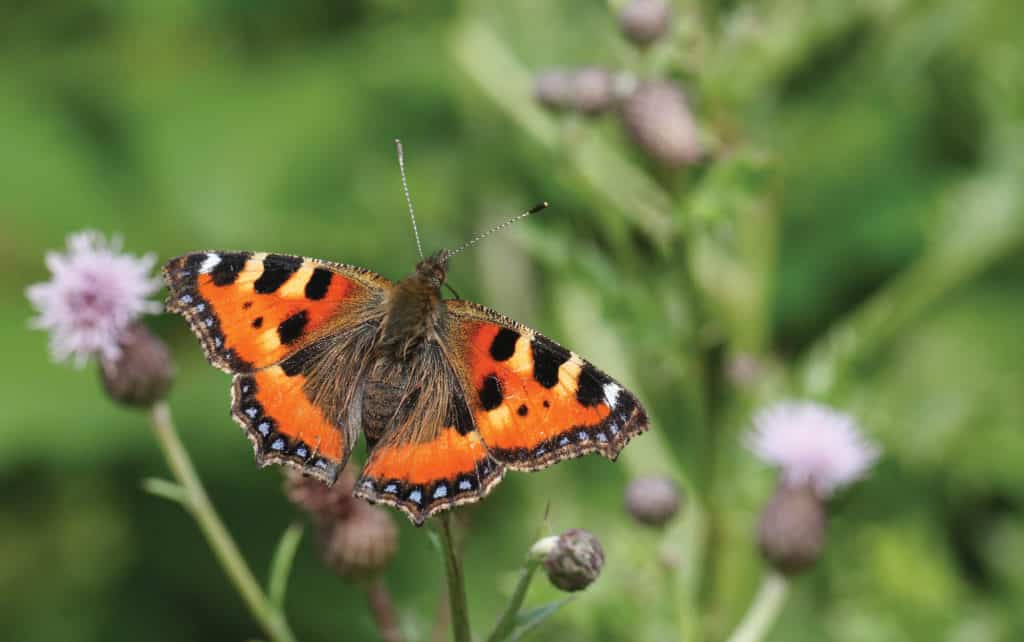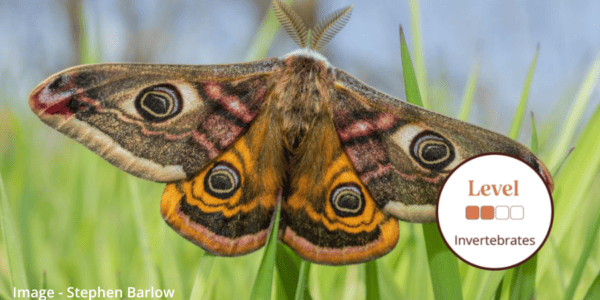This beginner course will provide you with the skills to identify British butterflies and moths correctly. Develop an understanding of their ecology and monitoring techniques.
Comprising of over 2 thousand species in Great Britain alone, moths and butterflies (Lepidoptera) play a vital role in our ecosystem and are key indicators of climate change and the health of the environment.
This course will include:
- An introduction to the differences between butterflies and moths and the role they play in the ecosystem
- Help and advice on ways of observing and recording moths using light sampling techniques
- Practical workshops to sharpen identification skills

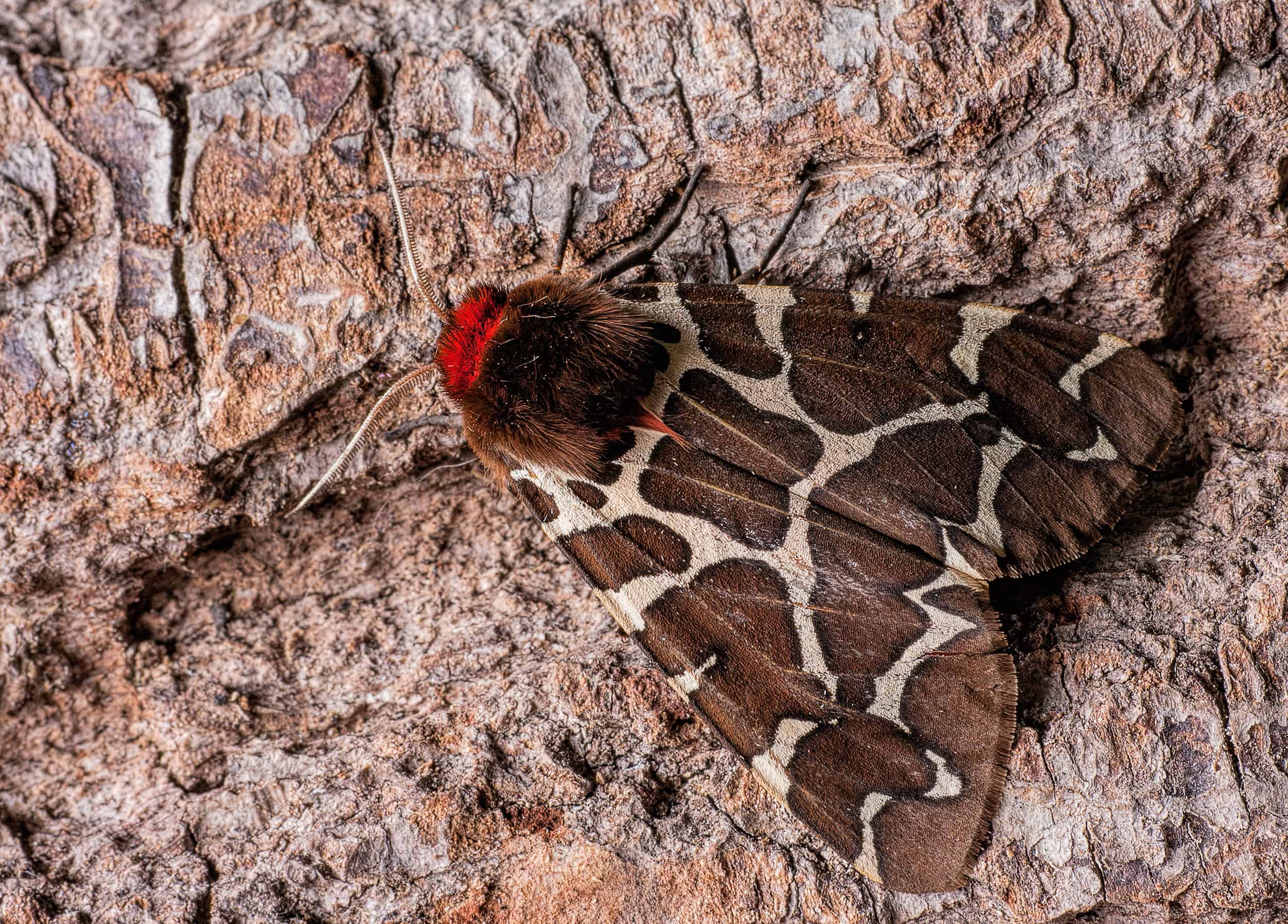
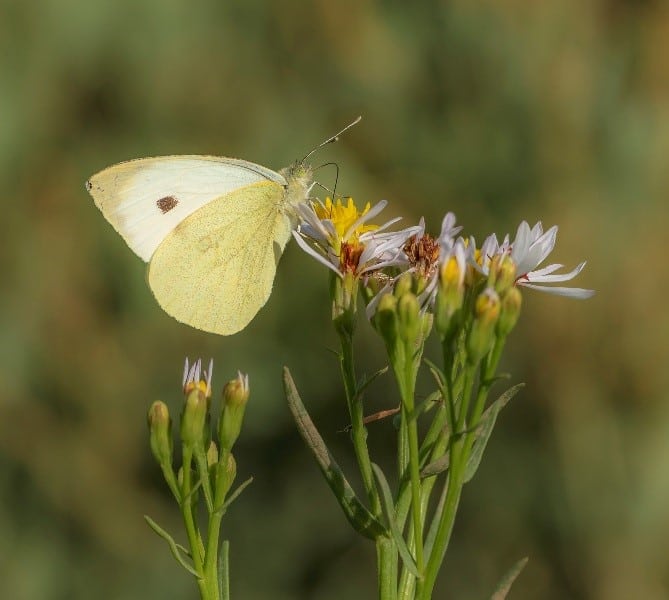
Read More
This beginners course will introduce you to British butterflies and moths in a practical and enjoyable way. It will highlight their beauty and diversity and allow you to encounter a selection of local species. You will be introduced to Lepidoptera ecology highlighting their survival strategies, monitoring techniques and assistance from an expert on how to correctly identify different species. During the course, you will have the opportunity to set a moth trap allowing you to discover a diverse range of species, including some rare finds!
By the end of the course, you will be able to:
- Confidently identify a range of local species of butterflies and moths
- Explain the ecology of different species
- Understand how to observe and monitor Lepidoptera
Who Should Attend? – Nature enthusiasts, students, rangers, early career consultants and ecologists.
Knowledge Level – Beginner. Level descriptors can be found on the following web-page: Framework and Course Level Descriptors
Prior Knowledge – No existing knowledge or experience is needed for this course, just a willingness to explore and learn.
PLEASE NOTE the course fee is for tuition only. There are no accommodation or evening meal facilities available with this course.Refreshments (tea and coffee) will be available.
If we are unable to reach viable numbers for this course, we will inform you of the course cancellation 4-5 weeks prior to the course run. We would recommend when purchasing accommodation and/or travel you should take out your own insurance.
Bookings will close if course capacity is reached.
Please email [email protected] if you have any questions.
About the Tutor
David Brown
David Brown is the Warwickshire County Recorder for Lepidoptera and the author of The Larger Moths of Warwickshire. He has led courses at Field Studies Council Centres over a number of years. A lecturer at Birmingham and Warwick Universities Extramural and Open Studies departments for the past 20 years, he is an active field entomologist.
Example Timetable
Timetable
This timetable is subject to change but should give a clear outline of what to expect.
Please arrive in time for the course to start promptly at 07:30pm on Friday evening
The course will end at 4:00pm on Sunday
Day 1
Evening. Introductions and classroom session covering: species we hope to find/information on each.
Day 2
Morning. Moth trap inspection.
Afternoon. Field session, butterfly and day-flying moth walk.
Evening. Classroom session covering: Identification skills and techniques.
Day 3
Morning. Moth trap inspection.
Afternoon. Classroom session covering: Identification skills and techniques; results and conclusions of our findings. Recap and final questions
4 pm End of course.
PLEASE NOTE the course fee is for tuition only. There are no accommodation, lunches or evening meal facilities available with this course.
What's Included
The course has been carefully created by expert tutors and educators to help you continue to build and develop your knowledge and apply it within the field surrounded by like-minded individuals.
The course includes:
- Classroom learning covering the theory of the species
- Field excursions to apply new knowledge
- Expert tuition for which the Field Studies Council is renowned
- Clear objectives and progression
- Refreshments (tea and coffee)
You can rest assured that the absolute best content from an expert in environmental education will be provided. In choosing a Field Studies Council course, you will be joining thousands of people who learn with us each year.
Bursaries and Subsidies
Student Discount
This course is eligible for a student discount. If you are a current student, please use discount code BioStudent20 at checkout for 20% off all Biodiversity courses.
Natural History Bursaries
There are a number of natural history bursaries available to help with the cost of your course. To find out if you and your chosen course are eligible, read more here.
Before You Attend
What to bring:
- Notebook and pencil
- Lunch and refreshments
- Sensible footwear and clothing for being outdoors
- Small bag to carry personal items
If you have them:
- Headtorch (preferably one with a red light setting)
Recommended Literature
When you book this course, you will receive a discount code for the Field Studies Council recommended guide below.
- Field Studies Council Butterfly Guide
- Field Studies Council Moth Guide
- Chris Manley British Moths and Butterflies - A Photographic Guide
- Roy Leverton Enjoying Moths
- Bernard Skinner Colour Identification Guide to the Moths of Great Britain
- P Waring, M Townend Concise Field Guide to Moths of the British Isles
- Richard Lewington Pocket Guide to the Butterflies of Great Britain and Ireland
There will be a member of staff with first aid training and access to a first aid kit on site. If you have special medical or access requirements, please let us know as soon as possible so we can plan the course.
Opportunities to attend this course
-
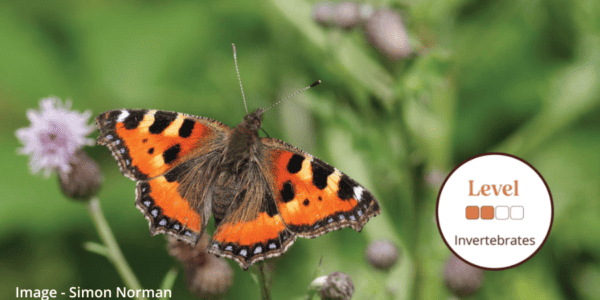
Fri 07, June 2024 19:30 - Sun 09, June 2024 16:00
Note: Course timings are Friday: 7:30pm - 9:00pm. Saturday: 9:00am - 7:00pm. Sunday: 9:00am - 4:00pm. If you would like to book accommodation, lunch and an evening meal at the Preston Montford Field Centre, please email: [email protected].
-

Fri 28, June 2024 19:30 - Sun 30, June 2024 16:00
Note: Course timings are Friday: 7:30pm - 9:00pm. Saturday: 9:00am - 7:00pm. Sunday: 9:00am - 4:00pm. The centre is unable to offer accommodation with this course, please book local accommodation if you require overnight stays and ensure you take out the appropriate insurance.
-

Fri 05, July 2024 19:30 - Sun 07, July 2024 16:00
Note: Course timings are Friday: 7:30pm - 9:00pm. Saturday: 9:00am - 7:00pm. Sunday: 9:00am - 4:00pm. If you would like to book accommodation and meals at Flatford Mill, please email [email protected]. Please note the Centre may not be able to guarantee accommodation and meals during this course.
No current dates for this course? Click here to view all the upcoming Natural History courses.
Progress Your Learning
This is a training course from the Field Studies Council, delivered by expert tutors with an approachable learning style. After attending this course, you may like to progress your learning with further relevant courses or branch out into other areas of natural history. The Field Studies Council offers both online and in-person courses, so you can choose the learning style that suits you best.
The course gives you the opportunity to immerse yourself in a new subject and acquire novel skills. Our online portal gives you time to study at your own pace and fit the lessons around your own schedule.
If you have any questions about our courses please check our Frequently Asked Questions or email [email protected].
Group Bookings Made Easy
If you have a group of 10 or more individuals wanting to complete one of our courses, our team are available to discuss your options – from discounts to private team courses. Click here to find out more!
You can rest assured that the absolute best content from an expert in environmental education will be at your fingertips. In choosing a Field Studies Council course, you will be joining thousands of people who learn with us each year.

